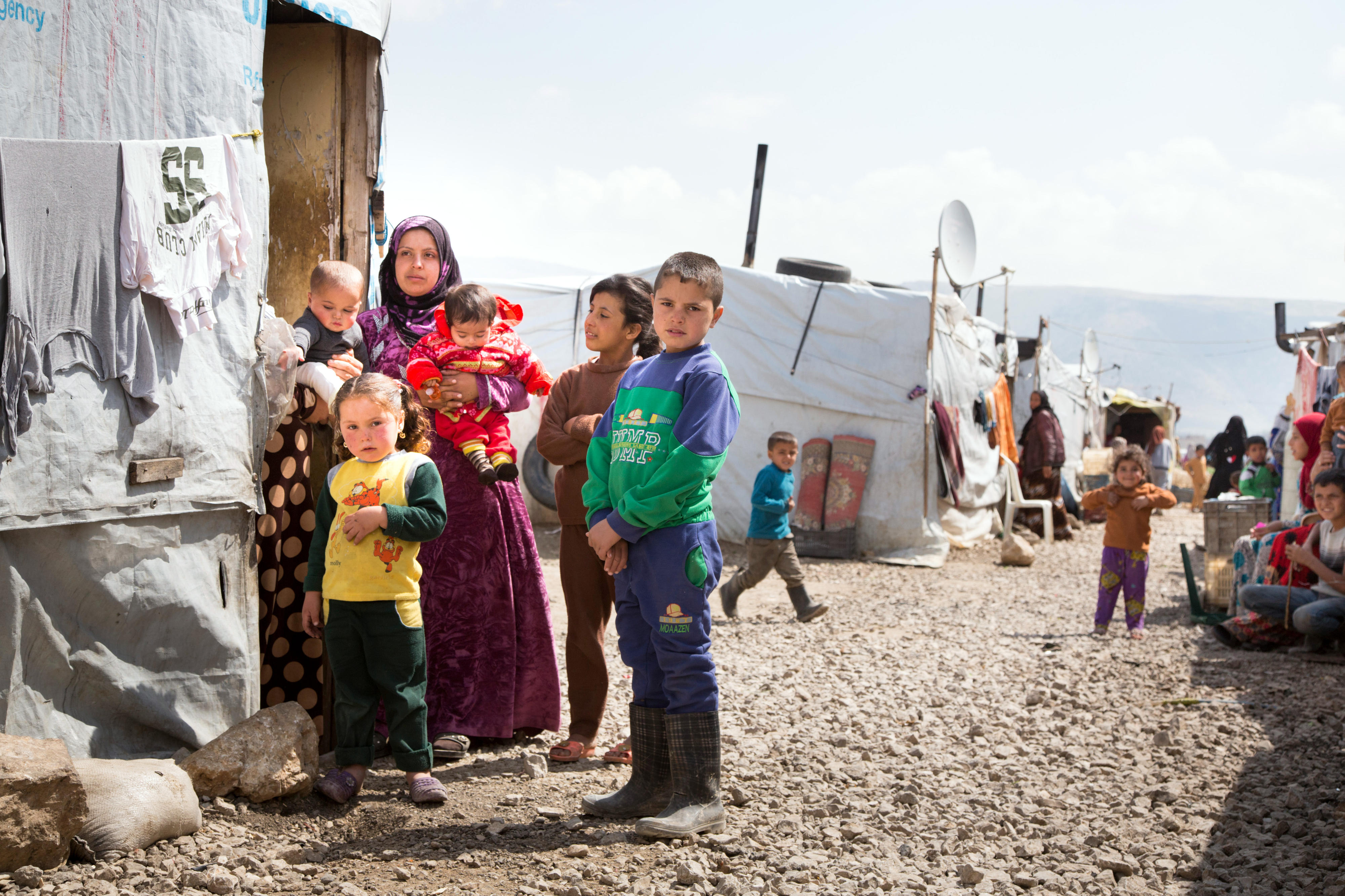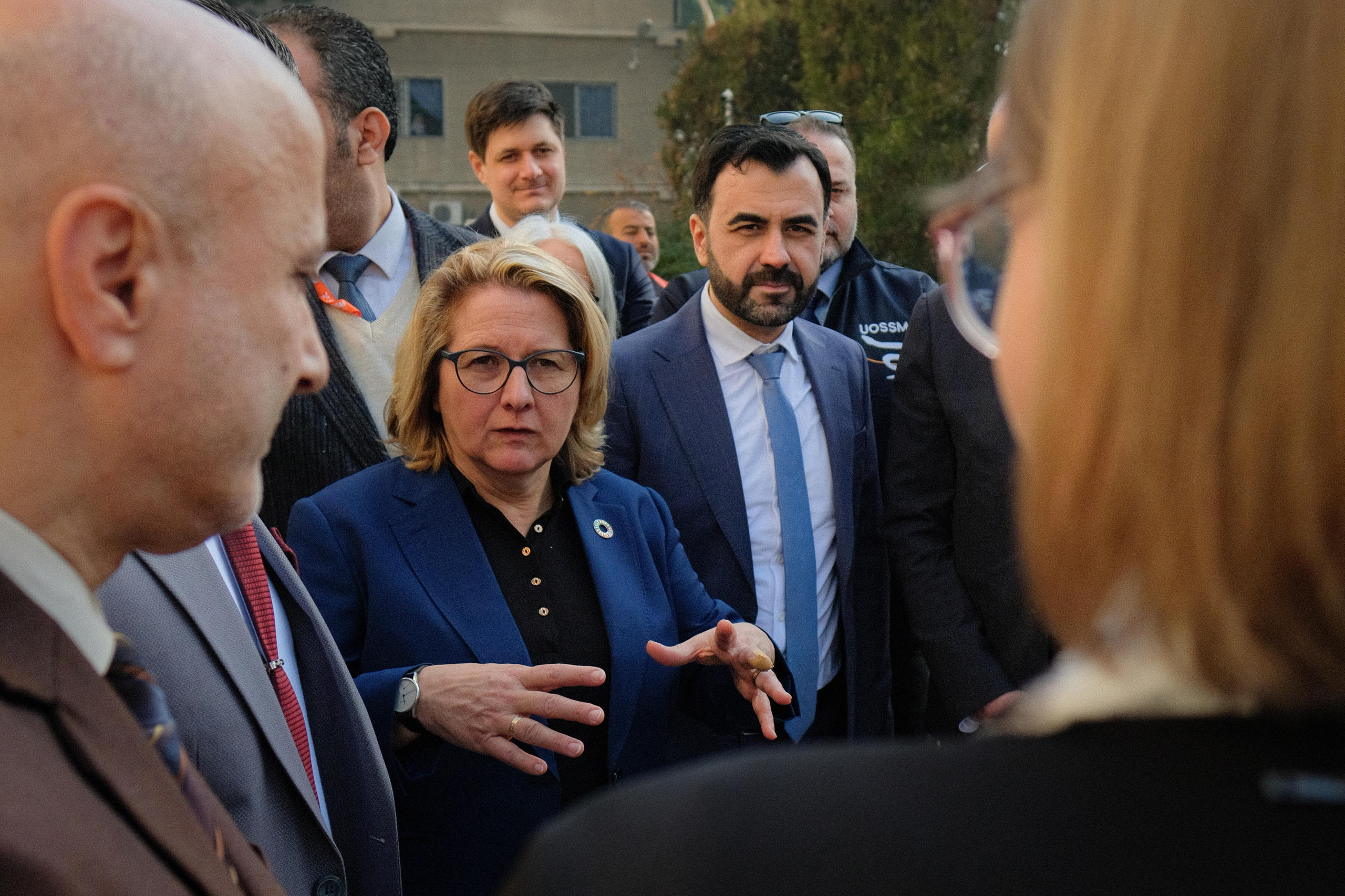Ninth Brussels conference on Syria Germany pledges support for an inclusive and peaceful transition process in Syria
17 March 2025 | The ninth international Brussels conference on Syria is taking place today.
Foreign Minister Annalena Baerbock issued the following statement: “Three and a half months after the fall of the Assad regime, the people of Syria have a historic opportunity for a better, more peaceful future. Closely bound up with this, however, are concerns about a relapse into renewed violence and instability. The terrible massacres perpetrated against the Alawite community a week ago demonstrate how urgent it is to take concrete steps towards political inclusion – for all Syrians, regardless of ethnicity, religion or gender. These steps include the transitional government addressing the recent escalation of violence, effectively preventing further violence and acts of revenge, and developing a viable plan for a transitional judiciary. Only if all population groups are sufficiently involved in the national transition process will it be possible for Syria to enjoy peace in the long term. Rebuilding Syria politically, economically and socially is nothing less than a mammoth task. We want to support the country on this difficult path with the Brussels conference on Syria. We must not miss the window of opportunity for an inclusive political transition. At the same time, we must lay the groundwork for reconstruction measures and for the improvement of the economic situation. With this conference, the international community is making it clear that we will not abandon the Syrian people in this process.”
Development Minister Svenja Schulze issued the following statement: “The Syrian transitional government has taken a lot of steps in the right direction, but the situation in the country is still very fragile. A key thing for making the transition process a success now is to quickly organise improvements for the population. Together with other donors, Germany has stated clearly that the support for Syria is linked to the expectation that the new Syria involves all social and religious groups in the country. The unforgiveable massacre of civilians just over a week ago must be investigated and the perpetrators held accountable. Syria now has a historic opportunity to set the course for peaceful und stable development. Notwithstanding the risks, it would be wrong not to do everything we can to support Syria in embarking on such a development path.”
More information
The ninth international Syria conference, entitled “Standing with Syria: Meeting the Needs for a Successful Transition”, is taking place in Brussels today. Germany is represented by Foreign Minister Annalena Baerbock and Niels Annen, Parliamentary State Secretary at the Federal Ministry for Economic Cooperation and Development. Around 80 delegations are expected to attend, including from countries in the region, representatives of the United Nations and, for the first time, the Syrian transitional government.
The Brussels conference on Syria is the fourth high-level political conference on support for Syria after the fall of the Assad regime and also the ninth annual European Union donor conference on the Syrian crisis. In addition to the continuing high level of humanitarian need in Syria and neighbouring countries, the focus now is on supporting a transition to a stable, peaceful and inclusive Syrian state following the overthrow of dictator Bashar al Assad on 8 December 2024.
The security situation in the country and the humanitarian situation in Syria continues to be tense. The crisis in Syria also remains one of the world’s biggest refugee crises. There are still 4.6 million refugees in neighbouring countries and 7.4 million internally displaced persons in Syria who need to be provided for. The country’s economic recovery and the start of reconstruction are important prerequisites in order for stabilisation to succeed and for the various groups in Syrian society to be able to coexist peacefully and on an equal footing.
Under its interim budget rules, Germany is pledging funds for the entire region totalling around 300 million euro, of which 168 million euro is to be contributed by the Federal Foreign Office and 133 million euro by the Federal Ministry for Economic Cooperation and Development. More than half of the funds provided benefit people in Syria. In addition, Syrian refugees and host communities in Jordan, Lebanon, Iraq and Turkey are receiving support. All measures in Syria are being implemented not with the Syrian transitional government, but exclusively via UN aid organisations and NGOs.
The Federal Foreign Office funds comprise 131 million euro for humanitarian assistance and 36 million euro for stabilisation and peacebuilding measures. Here, international organisations and NGOs will be providing support throughout the country in the provision of food, healthcare services and emergency shelters, as well as implementing measures in the areas of water and hygiene, and protective measures for particularly vulnerable groups such as women and children and victims of political persecution. In addition, civilian engagement in the Global Coalition against Daesh is being promoted, alongside measures to document, investigate and prosecute crimes committed by the Assad regime and so called IS. The implementing partners include GIZ and international and local non governmental organisations such as the Syrian civil defence (White Helmets).
The funds from the Federal Ministry for Economic Cooperation and Development will be used to give children and young people access to education and psychosocial support. Drinking water and electricity supplies are being restored in neighbourhoods and villages that have been cut off, and refugees and internally displaced persons are being given the opportunity to earn their own income thanks to employment measures. The Federal Ministry for Economic Cooperation and Development is also supporting Syrian civil society in its efforts to promote the rights of all Syrians as well as peaceful coexistence. The package also includes support for hospital partnerships and food security, which have been approved by the budget committee.


